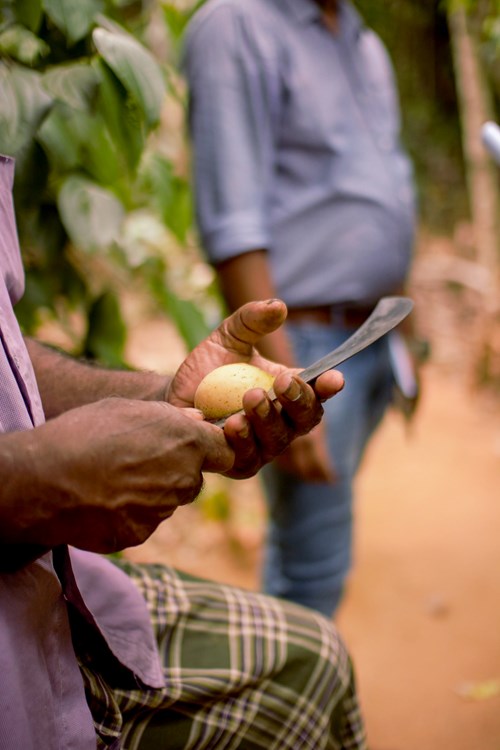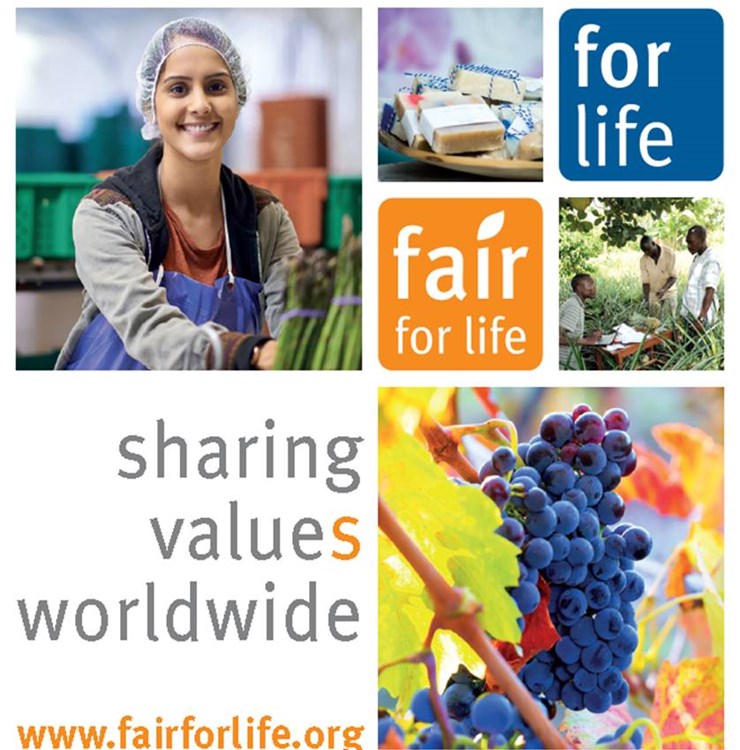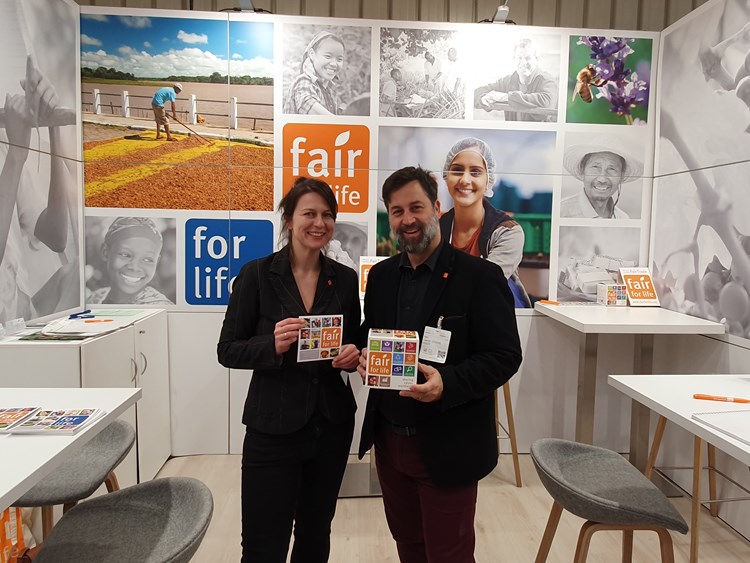Supporting key workers worldwide - why strong partnerships are more important than ever
To celebrate World Fairtrade Day, we spoke to Ecocert's Development & Partnerships Manager, Laurent Lefebvre, about how organic businesses can make their supply chains fair with Fair for Life and For Life.
The ongoing pandemic has forced us to put a pause on our lifestyles and economies. With the exception of the supply of masks, globalised trade has come to a halt, and our consumer-based societies have entered a period of hibernation. The COVID-19 crisis has come as an extreme reminder of the essential nature of agricultural and agri-food activities. It highlights the fragility of our economy, and its dependence - sometimes tragically - on foreign countries for our food.
A societal revelation
As we approach World Fair Trade Day, my hope is that this combined organic and Fair for Life model will inspire others to play an essential role in rebuilding the post COVID-19 world.
In this anxiety-provoking situation, the crisis that we’re experiencing has become a revelation for many, accelerating our collective awareness. Our value systems are being overturned, emphasising the social value of all those in the front line that care for us, feed us and ensure the continuity of our children's learning, while we are confined: healthcare personnel, farmers, transporters, supermarket cashiers, teachers. We are more than grateful, but have we always been grateful?

Small is beautiful (and adaptable)
For our food supply, this crisis illustrates a few key things:
- In the short term - the importance of having a production system organised locally, with channels anchored to specific regions, linking together agricultural, processing and distribution companies
- In the medium term, it calls for a reflection on our production methods and their resilience
- And the production capacity to hold out
This crisis has highlighted the resilience of stakeholders in organic and fair trade sectors, in particular, and their capacity for change. In the last few weeks, our food industry has been forced to adapt to historical upheavals in the structure of demand. Thanks to an unprecedented mobilisation of food professionals (producers, processors and distributors), we’ve been able to avoid shortages.
In this unprecedented situation, despite their often-smaller size, and the constraints of additional regulation, the organic and fair trade sectors have held firm. They’ve continued to meet very high consumer demand and to cope with the unexpected.
Given that the conventional model, arguably, has more resource to pull on, it’s interesting that shorter and increasingly, local supply chains seem to have coped equally well. There are some very good reasons for this.
Fair trade is more than just shared equity
Where the players in a supply chain know each other, external dependencies are reduced. As well as guaranteeing a more balanced sharing of value within the supply chains, fair contracts in an upstream supply chain, based on partnership and long-term commitment, better facilitates the management of shocks to the system. In this calmer social climate, the adaptation of production chains - despite the health situation and growth in demand – is just easier.
The COVID-19 crisis has also revealed the deeper meaning of ‘business partnership’. True partnerships go beyond the notion of equity, which aims to ensure fair remuneration and sharing of added value. Being a true partner is not just about paying a fair price, but also about making a long-term commitment - i.e. being present with suppliers or customers – and supporting them in difficult times, such as the current situation. In this way, Fair for Life is distinguished by the level of commitment between the participants in the chain.

Fair for Life and Fair Life - supporting those who go the extra mile
Many companies go further than the organic specifications, implementing social and environmental responsibility initiatives in parallel. This helps the whole chain to perform better in areas as diverse as working conditions, social dialogue and corporate governance.
The goods may still be getting through, but how does the consumer, who is keen to support this approach, differentiate between the products that are truly ethical and sustainable, and those that aren’t? Well, some of the most progressive brands will not only be organic, but will also bear the Fair for Life or For Life label.
Both Fair for Life and For Life were created in 2006 in answer to a specific request from the organic sector to support businesses committed to working more closely with their trade partners and producers. Fair for Life is a rigorous, independent accreditation for responsible, fair trade end-to-end supply chains (and products) anywhere in the world. For businesses who are looking for CSR accreditation only, For Life is an alternative scheme that provides the option for either full chain accreditation, products or even single operator accreditation.
Where they are capable of making informed purchasing decisions, citizens have a big role to play in supporting better practices. With greater transparency between the players in the sector (producers, processors and committed brands), Fair for Life and For Life’s approach makes clearer product labelling both on the origin and impact, possible.
A better future for our vital food key workers – and everyone else
This is fundamentally how Fair for Life functions. More autonomous - with both vision and practices that favour a long-term approach - it offers essential guarantees that help confirm the economic robustness of the organic and fair trade model. In this time of fast moving change, if we want greater food security, then it’s more import than ever that we protect and support the vital ‘key workers’ that supply our food.
As we exit the current crisis, there will be the inevitable rethinking of our economy. Putting the preservation of ecosystems, health and solidarity back at the centre will be key. These are three necessary conditions for the resilience of our societies.

Laurent Lefebvre is the Development & Partnerships Manager within the Ecocert Group CSR & Fair Trade Department.
To find out more about how Fair for Life or For Life accreditation can help your business, join our webinar on Tuesday 9th June 2020.



